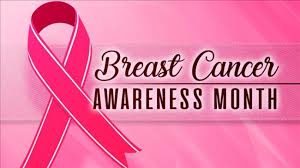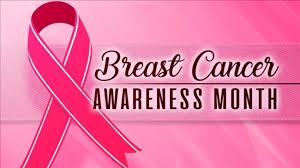
October is Breast Cancer Awareness Month, which focuses our attention on an all-too-common diagnosis affecting many of our loved ones. This is a difficult battle to fight. In this post we have gathered some ideas on ways you can help those you know who are fighting breast cancer.
Help Her Stay Organized
Helping your survivor manage the details during this stressful time is a great way to assist. Helping in the following areas can help ease her burden:
Keep records. Your loved one will need to keep copies of all kinds of things to be prepared for different situations during her diagnosis and treatment. For example, she’ll want to file:
• Contact information for doctors, nurses or any healthcare provider
• Personal health history, including surgeries, allergies, hospitalizations and other health problems
• Diagnosis, pathology, scan and laboratory reports
• Treatment information, including drug names and dosages
• Insurance policies
Go to appointments with her. Offer to attend doctor’s appointments and take notes, and learn to communicate with her healthcare team. This will help with her record keeping, and you might even help her find answers. Familiarize yourself with medical terms and treatment information.
Research financial assistance. Treating cancer isn’t cheap. Your loved one may need financial assistance, and there are options from government and nonprofit agencies to assist with the financial burden. Visit our financial assistance page to get started.
Handle her everyday tasks. Getting a breast cancer diagnosis doesn’t stop daily responsibilities of needing to eat, run errands, care for children and pay the bills.
There are many tools out there to help both you and her manage your day-to-day:
• Lotsa Helping Hands and Sign-Up Genius can help you rally your family and friends to assist with transportation, meals or visits. With either of these sites, you can let your online circle sign up for the tasks that suit them best.
• CarePages helps you keep everyone informed. You can share news, photos and communicate with all of your contacts at once.
• MyLifeLine.org allows you to create a free personalized website that combines a helping calendar, blog and fundraising to keep track of everything in one place.
Communication is Key
Communicating with your loved one and helping her communicate with others helps to ease the emotional burden of dealing with a breast cancer diagnosis. Keep communication open and honest. It will help you offer care more effectively. Understand that she will often worry just as much about you as you do about her, and that she might cope differently than you would cope with cancer. You may face difficult and emotional conversations. Communicating with children, other family members and friends about a breast cancer diagnosis can present intense challenges. Every person is unique, and there is no “right” way for someone to cope. Be available to help her figure out the best way to tell the people she loves about her diagnosis.
We hope these tips will help address needs and give individuals ideas of how to offer practical assistance. We appreciate the following resources for their information and outreach for supporting those with breast cancer.
https://www.nationalbreastcancer.org/breast-cancer-awareness-month
https://www.today.com/health/fighting-pretty-breast-cancer-survivor-aims-spread-hope-t138472
https://www.youngsurvival.org/learn/co-survivors/how-to-help


